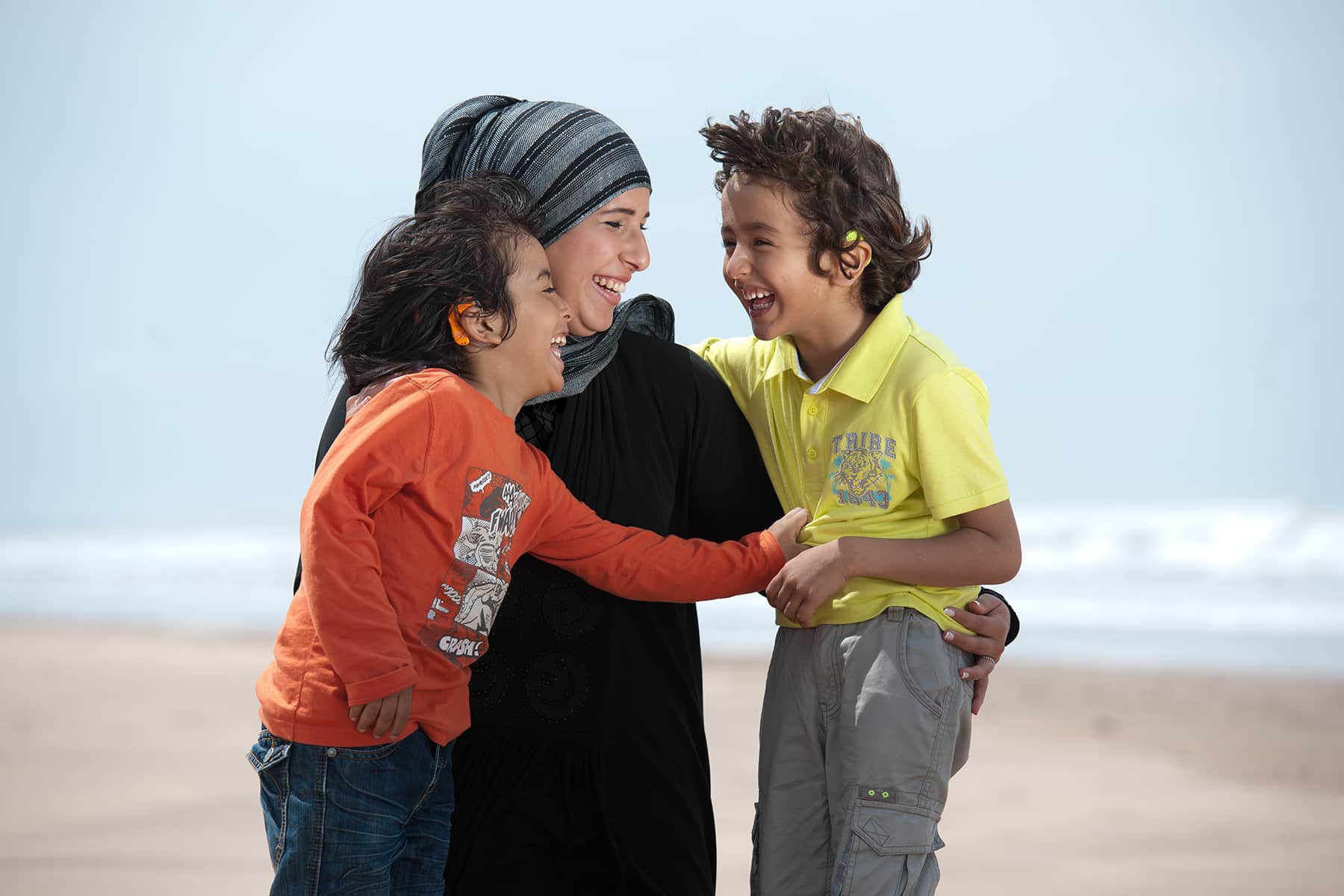
MED-EL
Published Jan 09, 2015
Language Development for Children with Cochlear Implants
If children are implanted before beginning to speak, they will usually develop in stages similar to children with normal hearing—however these developments may be somewhat delayed. So, here’s a rough guide that you can use as a checklist to gauge the language development of your child cochlear implant recipient.

For children implanted at age 0–2.
Of course this all depends a lot on the child’s specific situation, like how old he or she was when implanted, the types and amount of therapy that he or she receives, and the family situation.
Language Development: A Checklist
- A child who was born deaf, but has not yet received a cochlear implant, will sometimes develop the first stages of language. That means he or she may start saying individual vowels or single syllables (ba! da! aaaaaa!) or may even start babbling combinations of vowels and consonants like dadada, bababa.
- Some children will start to babble almost immediately after their cochlear implant audio processor is activated, while others might take a little longer.
- In the first weeks after receiving a cochlear implant, a child will likely begin to react to sounds. This could include smiling or the use of physical gestures like eye movement, head turning, pointing, to indicate that he or she notices the sound.
- Then he or she will likely start or continue to develop vocalization skills. As I said above, some children might do this right after the activation while others take a bit longer.
- Sometimes your child might develop what is sometimes called jargon, or strings of different syllables and vowel/consonant combinations that have adult-like speech patterns but aren’t any understandable language.
- Then your child will speak his or her first words. Early on this might be sound-alike words (for example “ga” for car and “bay” for baby) but later these will become clearer.
- At this point your child’s vocabulary should develop quickly. The more time you spend together, the better your child’s language skills should develop. As an example of activities you can do, here are 10 Ways to Develop your Child’s Listening Skills as well as 5 Listening Games that You can Play Together.
- With the development of vocabulary will come the ability to answer simple questions and follow simple commands, like “Put your coat on” or “Where is Bernie?”.
- Then your child should be able to combine words. These will sound like incomplete sentences such as “Mom cookie!” instead of “Mom I want a cookie!”. Encourage this stage of development by repeating to your child the correct sentence by saying something like, “Oh, you want a cookie!”.
- This will be followed with simple utterances as your child tries to speak longer sentences but uses familiar sounds and grammar to replicate more difficult structures. If your child says “I eat three cookie this morning” instead of “I ate three cookies this morning”, you can help your child by saying “Oh, you ate three cookies this morning—look! One cookie, two cookies, three cookies!”.
- Soon your child will start to use more correct grammatical patterns to connect sentences and tell a story.
- Finally, your child should be able to compose complex sentences and follow complex commands; answer questions like “Who came to dinner yesterday?”, “What do you do when you’re thirsty?”, and even “Why does a snowman melt?” with full sentences, and tell simple stories.
Depending on how old your child is when he or she receives an implant, this should be a fairly representative checklist of his or her language development. But regardless of your child’s age it’s important to speak with your child’s speech and language therapist regularly to discuss your child’s language development.
A professional like this is the one who can quickly recognize if everything is going to plan, or if there is a need for special intervention or rehabilitation activities.
Has your child received a cochlear implant? How did you help him or her develop language skills?
This post was written with help from Joanna Brachmaier, a rehabilitation and education specialist at MED-EL.
References

MED-EL
Was this article helpful?
Thanks for your feedback.
Sign up for newsletter below for more.
Thanks for your feedback.
Please leave your message below.
Thanks for your message. We will reply as soon as possible.
Send us a message
Field is required
John Doe
Field is required
name@mail.com
Field is required
What do you think?
© MED-EL Medical Electronics. All rights reserved. The content on this website is for general informational purposes only and should not be taken as medical advice. Contact your doctor or hearing specialist to learn what type of hearing solution suits your specific needs. Not all products, features, or indications are approved in all countries.

MED-EL

MED-EL


